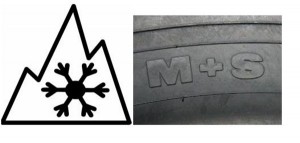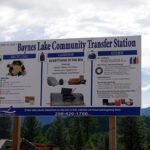Home »

Winter tires fastest growing category in Canada
Winter tire use is gradually rising, but driver education about safety benefits remains essential to wintertime accident prevention. Four-in-10 drivers outside Quebec still do not own winter tires.
Winter tire shipments across Canada have grown at an annualized rate of four per cent over the past five years making winters the fastest growing tire category, according to the Tire and Rubber Association of Canada (TRAC).
The growth of this category is due to efforts by tire makers, retailers and the government to educate drivers about the superior traction and shorter stopping distances provided by winter tires. Government incentives to make winter tires more affordable have also had a positive impact.
TRAC’s 2017 Canadian Consumer Winter Tire Study, conducted by Leger, found that 66% of Canadian motorists ride on winter tires. But outside Quebec, where winter tires are the law, the percentage drops to 60%. For the approximately 40% of motorists found by the survey not to be using winter tires, the top reasons were the belief that all-season tires provide sufficient traction (51%), reduced driving in winter (22%) and cost (21%).
Regionally, the 2017 study found:
- 60% of British Columbia drivers ride on winter tires;
- Alberta’s usage rate is 57%;
- In Manitoba and Saskatchewan usage stands at 48%;
- 59% of Ontario drivers use winters;
- In Atlantic Canada, where winter tire usage is surpassed only by Quebec, the usage rate is 83%.
To support consumer education, TRAC has just released a new report detailing winter tire use in Canada and the latest market and test data. Read the full 2017 Winter Tire Report.
“Despite increasing winter tire usage, educating drivers about the safety benefits of winter tires remains critical to making our roads safer in winter,” said Glenn Maidment, president of TRAC. “The fact that four-in-10 motorists outside Quebec are not using winter tires puts at risk everyone who drives in cold-weather conditions – regardless of whether the road surface is dry, snow-covered or icy. Every motorist needs to understand winter tires radically outperform all-seasons in all cold-weather driving conditions.”
The superior traction and braking capabilities of winter tires are the result of advanced tire technology, particularly in tread design and rubber compounds. These advances have improved traction performance across all tire categories, but especially for winter tires. The “soft” tread compounds in today’s winter tires retain their flexibility even in extreme cold. At temperatures at or below seven degrees Celsius, winter tires provide significantly better traction than all other types providing greater control on all cold-weather road surfaces and significantly shorter stopping distances.
 The three-peaked mountain snowflake symbol is the mark of a dedicated winter tire. Tires with this distinctive pictogram meet or exceed tire industry snow traction requirements. Consumers should look for this symbol, which is on the sidewall, when shopping for winter tires.
The three-peaked mountain snowflake symbol is the mark of a dedicated winter tire. Tires with this distinctive pictogram meet or exceed tire industry snow traction requirements. Consumers should look for this symbol, which is on the sidewall, when shopping for winter tires.
“Research by the Quebec government shows that, since the winter tire law was enacted, the province saw a significant decrease in injury accidents in the province,” said Maidment. “Imagine the massive reduction in vehicle damage and personal suffering during the winter driving season across Canada if all drivers protected themselves and their families with winter tires.”
Winter tire buyer’s check list
Whether you live in the city or country, or whether you drive a big or small vehicle, winter driving conditions will impact your vehicle’s performance.
When deciding whether to install winter tires, ask yourself the following questions:
– Do you live where cold temperatures are common?
– Do you drive on icy or snowy roads?
– Do you have to use your vehicle every day, regardless of the weather?
– Do you drive off main streets and roads in winter?
– Do you drive early in the morning or late at night in winter?
– Do you drive nearly the same speed regardless of the temperature?
If you answered yes to one or more of these questions, winter tires may be right for you.
Talk to your tire retailer about your driving habits and what kind of conditions you drive in and what kinds of winter tires are best suited for you.
Tire and Rubber Association of Canada







